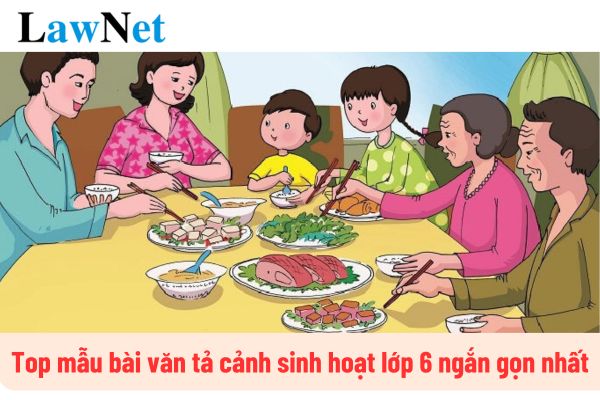Vietnam: What are the short sample descriptive essays on daily activities for 6th-grade students? What is the maximum age of students entering 6th Grade?
What are the short sample descriptive essays on daily activities for 6th-grade students in Vietnam?
A descriptive essay on daily activities is a type of essay that vividly and realistically describes everyday human activities. This could include simple family moments, lively school activities, or characteristic scenes of rural or urban life.
These descriptive essays have been practiced by students in the 6th-grade Literature curriculum.
Students and teachers may refer to the What are the short sample descriptive essays on daily activities for 6th-grade students for 6th-grade students in Vietnam below:
|
What are the short sample descriptive essays on daily activities for 6th-grade students
|
*Note: The information above is for reference only./.

What are the short sample descriptive essays on daily activities for 6th-grade students? What is the maximum age of students entering 6th Grade in Vietnam? (Image from the Internet)
What is the maximum age of students entering 6th Grade in Vietnam?
According to Article 33 of the regulations issued with Circular 32/2020/TT-BGDDT:
Secondary school age
1. Children shall start the sixth grade at the age of 11 and the tenth grade at the age of 15. For students skipping a grade or over-age students, the sixth grade and tenth grade starting ages shall be adjusted based on the age at which these students graduate from the previous education level.
2. For ethnic minority students, students with disabilities, disadvantaged students and students returning to Vietnam from abroad, maximum secondary school starting age shall be 03 years of ageer than the compulsory starting age.
3. At an education level, students may not repeat a grade more than 03 times.
...
In addition, Article 33 of the regulations issued with Circular 28/2020/TT-BGDDT stipulates the age of primary school students as follows:
Age of Primary School Students
1. The age for students entering 1st Grade is 6 years of age and is calculated by year. Disabled children, those with physical or intellectual development delays, children in particularly disadvantaged areas, ethnic minority children, orphans without support, children returning from abroad, and children of foreigners studying or working in Vietnam can enter 1st Grade at an older age than regulated, but not more than three years of ageer. Cases of children entering 1st Grade more than three years than regulated age shall be decided by the head of the Department of Education and Training.
2. Primary school students can be older than the regulated age in cases of grade retention, living in particularly disadvantaged areas, being ethnic minorities, being disabled, having physical or intellectual delays, being orphans without support, returning from abroad, and other cases according to legal provisions.
Thus, the age for students entering 6th Grade is 11. Disabled children, those with physical or intellectual development delays, children in particularly disadvantaged areas, ethnic minority children, orphans without support, children returning from abroad, and children of foreigners studying or working in Vietnam can enter 6th Grade more than three years than the regulated age.
*Note: For students who skip a grade in the previous educational level or start schooling at an older age than regulated, the age for entering 6th Grade can be adjusted based on the age of graduation from the previous educational level.
What are the qualities required for a 6th-grade Literature teacher in Vietnam?
Under Article 4 of the Provisions on Professional Standards for Teachers of General Education Institutions issued with Circular 20/2018/TT-BGDDT, a 6th-grade Literature teacher must possess the following teaching qualities:
Comply with regulations and practice teacher’s ethics; share experience, support colleagues in practice of ethics and making of virtues
- Criterion 1. Ethics
+ Qualified: The teacher complies with regulations on ethics
+ Good: The teacher has the spirit of self-study, self-training and attempts to improve moral qualities;
+ Excellent: The teacher is a role model in terms of ethics, shares experience, support colleagues in practice of ethics
- Criterion 2. Virtue
+ Qualified: The teacher has manner and method of working in conformity with works;
+ Good: The teacher has awareness of self-training to create an exemplary virtue; great influence on students;
+ Excellent: The teacher is a role model in terms of virtues, has great influence and support colleagues in making of virtues.

